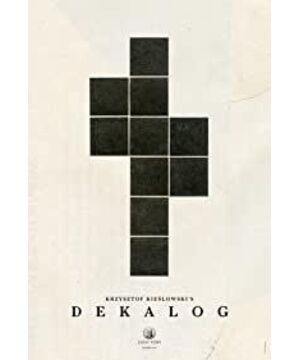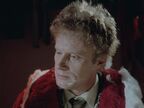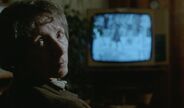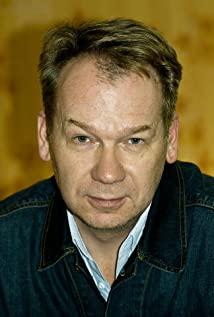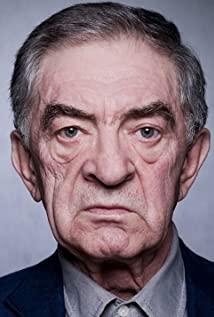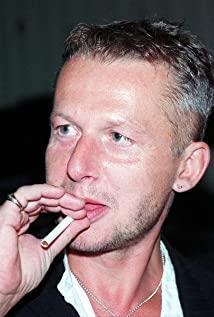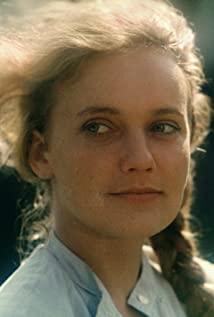That night, they talked all night. It turns out that the two have long ago had an emotional intention to surpass their father and daughter. They have desires, fantasies, and jealousy towards each other. Anka wants to change the relationship between the two, from a father-daughter relationship to a couple relationship. Michael admits that it is hard to see Anka with her boyfriend. The young Anka is so eager and speaks without concealment. She said that she had always hoped that the hands of her former little boyfriend who touched her belonged to Mi Gao, and wanted to be with Mi Gao. When she said this, Mi Gao hurriedly used his hands. Cover her mouth. When Anka chooses to express the desires and desires in his heart one by one, Mi Gao chooses to continue to suppress his feelings, waiting for Anka to marry one day, and he can retire. Therefore, when Anka took off his underwear in front of Mi Gao and wanted to present his body to Mi Gao, he did not hug her, but approached her and put on her underwear again. A behavior, Mi Gao's position, couldn't be more clear.
Early the next morning, Anka was awakened by the sound of the door opening. She jumped up from the bed and found that Migao had gone. Anka shouted to Miko from the window, saying that the content of the letter was her own fiction, and that she did not open her mother's suicide note at all. After returning home, they burned the letter, leaving only a corner: "Dear daughter, I want to tell you, Michael...". The rest were burned.
A letter seemed to untie Anka's life experience, but brought out another to put them on the shackles of morality and ethics. They were puzzled: Will they turn into incestuous "fathers and daughters"?
Apart from the secret, there is still identity, and besides the identity, there is still morality. If identity is their entanglement with the world around them, then ethics is their entanglement with tradition and history. Incest is not only about race, but the person involved is actually the so-called ethics. When Qi Jinggong asked about Confucius, why did Confucius answer "junjun, ministers, father and son"? Because this is a peaceful scene where everyone has their own positions, whether in society or in the family, once the hierarchy is determined, the power mechanism can operate freely. So let’s think back to the distress that was stuffed with dung in his mouth, which made him anxious. Perhaps it was not the fact that the father is not like the father and the son is not like the son itself, but the quasi-waste and indeterminate result from this. Chaos situation. The essence of the incident of incest is the so-called one who is not lost in the fire, which is worthy of the ages.
As Liu Xiaofeng said: "Mi Gao's reluctance to enter Anka's body is not that he does not want to enter, but that he does not want to cut through the halo of happiness in his current state. The father-daughter relationship so far is a condition of happiness, even though this kind of father The female relationship may be fictitious, but he dare not dismantle this fiction. He knows that the limit of desire, too much desire, the more likely to be lost." Here, Michael chooses to fight against the paradoxical humanity of the world, willing to refuse Anka's show of love , Give up the desire to be loyal to oneself, and individual desires are forced to subdue to reason here, which also corresponds to the director's consistent belief: everyone is a prisoner of their own desires. It is not easy to be a pure and honest person freely. Kieslowski said: "We can never say with certainty:'I am honest' or'I am dishonest.' All our actions and situations we have faced are the result of no other way out."
The corresponding commandment in the "Bible" is "honour your parents." Kieslovsky reveals this story ironically in this commandment. Obviously, the Polish director's "Ten Commandments" is not a re-enactment or reinterpretation of the "Ten Commandments of Moses", but a challenge to tradition in the context of the crisis of faith in the post-industrial era. But the director who asked the question could not give a clear answer to the question like God, and could only watch silently from the sidelines. He is a Sisyphus-like tragic hero, constantly pushing the boulders to the top of the mountain, and then hopelessly watching them fall back to where they were. Here, Kieslowski once again placed the protagonist of the movie in an extreme situation, faced with a dilemma, once again tortured human nature, the seemingly illogical, difficult-to-exist situation, but it is truly presented in the movie. occur. Anka allowed herself to fall in love with her father, but she could not devote herself to the flirting scenes between men and women during the classroom drama rehearsal. She asked the professor and did not understand why she fell in love with each other. The professor replied in an angry manner: "People are naturally crazy. , On the stupid side, think about it for yourself." This also answers thousands of unexplainable love myths.
View more about Dekalog reviews


